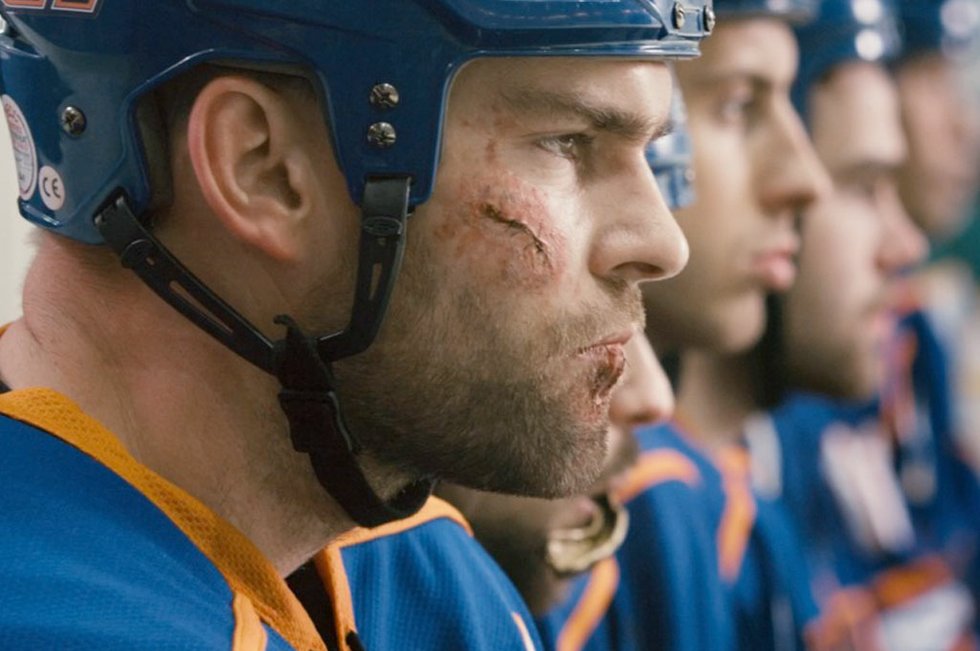
What it is about Quebec that makes its films superior and its filmmakers more sought-after than its Anglo-Canadian counterparts?
Sure, we’ve asked this question before, but with Blade Runner 2049 arriving to widespread hype and praise, Quebec director Denis Villeneuve is just the latest name thrown into the debate.
Now established among Hollywood’s hottest properties, Villeneuve is tackling Dune as his next project. Meanwhile Daniel Craig is pursuing him to direct the next Bond film and word has it that the long-gestating Angelina Jolie project Cleopatra is what he’s going to take a stab at.
Villeneuve is the valedictorian in a class that also includes Jean-Marc Vallée (Dallas Buyers Club, Wild, Big Little Lies) and Philippe Falardeau (The Good Lie, Chuck), Quebecois filmmakers who have reached beyond the border (and language barrier) to mount star-studded American productions.
Meanwhile, in English Canada, we’re still living off the laurels of David Cronenberg and Sarah Polley.
“In Quebec, we are less inhibited, artistically, culturally and politically,” said Falardeau, when I brought up the Anglo-Franco divide at the time he was about to step into the Oscar race with Monsieur Lazhar.
“We are less focused on box office and less focused on comparing our films to American films.”
Falardeau echoes a perpetual grief – that Anglo-Canadian audiences are simply an extension of American audiences, consuming their products. That puts the pressure on local filmmakers to compete.

Dallas Buyers Club, directed by Jean-Marc Vallée, won Oscars for Jared Leto (left) and Matthew McConaughey.
Telefilm Canada and local distributors favour (and focus their budgets on) productions that click on demand, like genre fare or star-driven dramas, films that can be easily confused as the latest offering from an American studio.
The bitter irony is that while filmmakers outside Quebec are encouraged to make product that looks American, directors like Villeneuve are being tapped to helm Hollywood productions. And remember that Villeneuve’s pre-Prisoners canon is the last thing to be confused with an American production.
His distinct early work like Maelstrom and even Polytechnique could only come from Quebec, a culture that nurtures auteurs by focusing on developing talent.
And when it comes to nurturing new talent and voices, francophones have a significant advantage thanks to Sodec (Société de développement des entreprises culturelles). The funding arm established in 1995 throws significant currency at Quebec arts, crucially through its Young Creators program. That means would-be filmmakers in Quebec have access to funding from both Sodec and Telefilm Canada. In English Canada, young creators are encouraged to make “credit card” films – as in “pile up some personal debt to make your feature debut and pray that shit goes well.”

Goon: Last Of The Enforcers, starring Seann William Scott, made $1.3 million in Canada, while De Père En Flic 2 made $7 million in Quebec alone.
If you’re wondering how Quebec can justify pouring more tax dollars into the arts, just look at their audience. Unlike the rest of Canada, French-Canadians actually demand and engage with local films and TV shows that speak their language and remain immersed in their culture. They even have their own star system (look up Michel Côté), which is exactly why Quebec filmmakers don’t need to compete with Hollywood to get attention.
Consider some local Canadian box office figures for comparison. According to Playback, the Goon sequel, Last Of The Enforcers, directed by Jay Baruchel who also stars alongside Seann William Scott and Liev Schreiber, earned approximately $1.3 million at the Canadian box office. Meanwhile, De Père En Flic 2, a father-son buddy cop sequel few people outside Quebec ever heard of, racked up $7 million in that province alone.
Put another way, Quebec audiences shelled out more than three times the money on De Père En Flic 2 than Spider-Man: Homecoming seven times more than Wonder Woman.
The dual-language buddy cop sequel Bon Cop Bad Cop 2 also cracked $7 million at the Canadian box office, defying my own assessment of it being totally worthless. But, significantly, 85 per cent of that box office came from Quebec.
Those are the big-budget (by Canadian standards) genre movies. Exact figures for smaller, artier fare are harder to come by since our box office is public information on a selective basis. I can tell you that Xavier Dolan’s screechy debut, I Killed My Mother, made $800,000 in Quebec alone. Those receipts would be like a jackpot for a new filmmaker from any other part of Canada.
David Hamilton (Deepa Mehta’s producer) once compared this situation to chocolate, referring to a study analyzing why the Swiss make it best. The Swiss don’t have the natural resources to produce chocolate. But their population, the world’s largest consumer for chocolate per capita, demands it.
Likewise, Quebec demands good filmmakers. The rest of us are just happy to be watching the new Blade Runner.
Stream 10 great films by Quebec filmmakers right now.
movies@nowtoronto.com | @justsayrad












